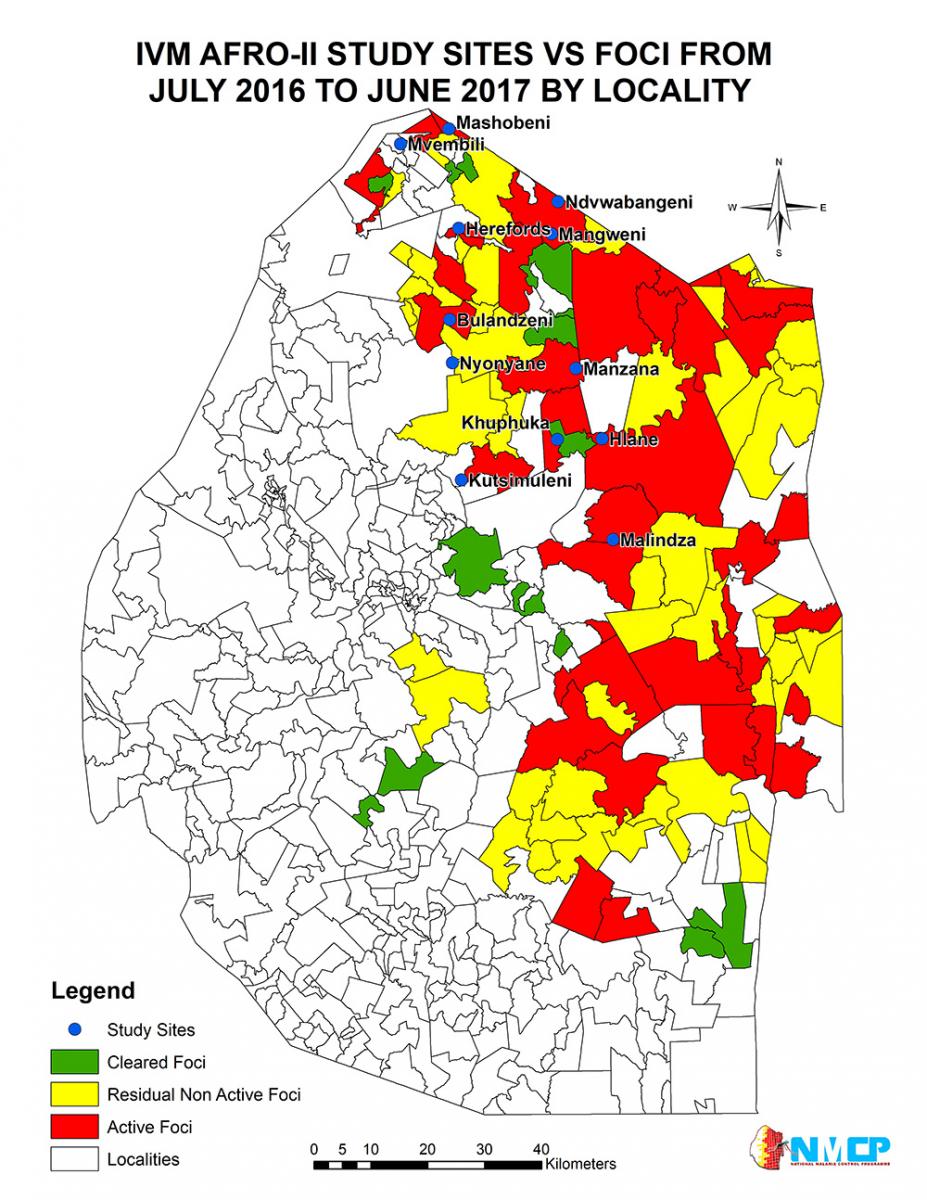icipe is from 2017-2021 leading operational research to evaluate the potential added benefit of integrating currently readily available but not-widely used vector control tools, namely dry season (winter) larviciding and house screening in the context of malaria elimination. Project countries include Namibia, Swaziland, Botswana, Mozambique, Zambia and Zimbabwe. The research constitutes a major component of a larger project "Demonstration of effectiveness of diversified, environmentally sound and sustainable interventions, and strengthening national capacity for innovative implementation of integrated vector management (IVM) for disease prevention and control in the WHO AFRO Region (AFRO II)", funded by the Global Environment Facility (GEF) through UNEP and WHO-AFRO. AFRO-II will support the implementation of the UNEP roadmap for development of alternatives to DDT (UNEP/POPS/COP.7/INF/7) endorsed by the seventh meeting of the Conference of the Parties (COP7) to the Stockholm Convention in May 2015. The objective of the road map is to make locally safe, effective, affordable and environmentally sound alternatives available for a sustainable transition away from DDT.
The overall hypothesis of the icipe-led research is that screening of houses or dry-season (winter) larviciding when added to existing vector control interventions such as LLINs and IRS will constitute a more effective strategy for malaria elimination compared to situations where only the latter two methods are used.

Botswana, Namibia and Swaziland are at the very southern limit of malaria transmission, which is highly seasonal and influenced by summer rainfall. The three countries have embarked on malaria elimination. Aquatic habitats serving as refugia for mosquito larvae during the winter (dry season) have frequently been cited as a suitable target for larviciding since they are limited in number and larval development times are extended due to lower temperatures allowing less frequent larvicide application. The three countries are for these reasons the ones participating in the evaluation of the winter-larviciding intervention. On the other hand, recent studies have shown house screening to significantly reduce the number of mosquitoes entering houses in several African countries including the Gambia and Tanzania. More studies are required to quantify this effect on a larger scale and in different eco-epidemiological strata. Thus, our goal is to determine whether there is any additional benefit in improving rural homes over using LLINs alone for protecting children against clinical malaria. The countries participating in the evaluation of the house screening intervention are Mozambique, Zambia and Zimbabwe. The research also involves the determination of the incremental cost-effectiveness of the interventions, and analysing with stakeholders the potential to scale this up in the countries.
Funded by:



Coordinated by:


